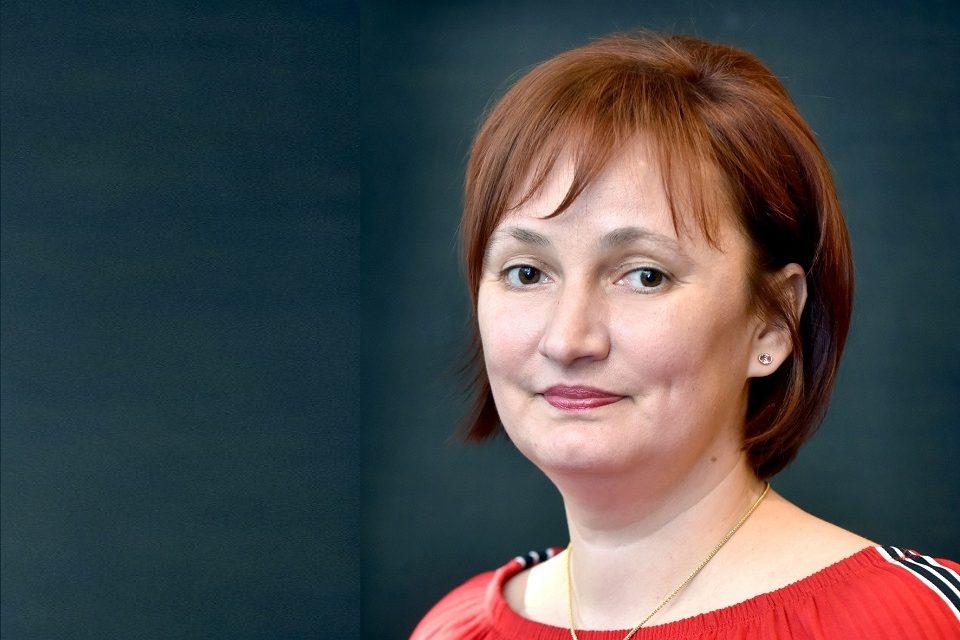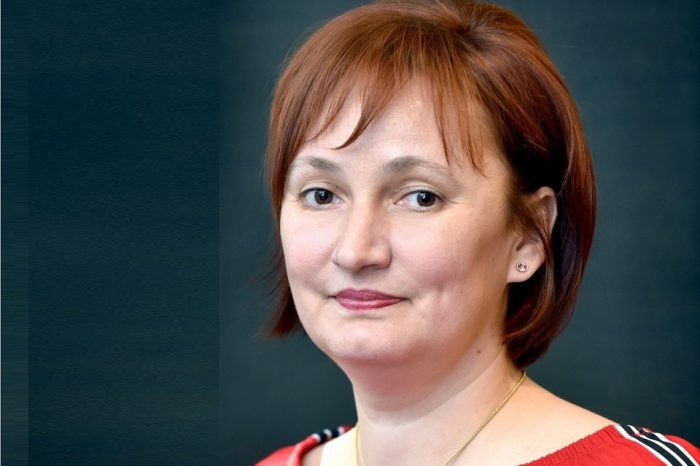Gabriela Streza, Valoria Business Solutions: Steps to resume B2B sales in a world affected by COVID-19

The year 2020 started with optimistic prospects for the Romanian business environment. The results of the study “The value on the evolution of business” forecasted by Romanian companies at the beginning of 2020 showed that 25% of companies expected increases in turnover of 10%-20% compared to only 16% a year earlier, 28% forecast an increase of 5%-10% compared to 26% in the previous year and 18% said that they will increase by percentages from 20% to over 30%, the same as in 2019, according to a point of view stated by Gabriela Streza, Business Development Director, Valoria.
The manager says: But over this optimistic landscape came the pandemic brought by COVID-19 and the two months of emergency. Many industries now have extremely delicate prospects, and the return will be gradual and difficult for all areas, even if for some it will be more difficult than for others (e.g. tourism, passenger transport, HORECA, etc.).
During the two months of emergency, declining or even lack of demand in many industries put sales processes on hold, and management teams needed to assess the impact of the pandemic on their business and industry.
With the prospect of a gradual return to business on May 15, managers need to be aware that the post-lockdown sales process will look different from what we have all considered the norm in recent years.
Especially in the case of B2B sales, it is good to expect potential customers to focus on questions such as:
- What steps have been taken to provide the most relevant description of products and services in the online environment?
- What are the ways to communicate with the company online and how will we digitally go through the steps of the sale/purchase process?
- How will the remote goods compliance inspection be carried out so that both parties are satisfied and, at the same time, the health safety conditions are respected?
- What are the options we have to make the delivery of products/services safe once contracted?
In this complex and changed context, we come up with recommendations to help you answer these types of questions and, finally, to resume your sales activity as smoothly as possible.
- Quantify the impact of COVID-19 on sales plans
Sales teams need to know the financial impact of COVID-19 in order to properly adjust the targets for the remainder of this year. This will help create a “normalized” view of the last 12 months of revenue, a key factor in evaluating business forecasts. Elements to consider include:
- Lost sales and margin (lost revenue that will not be offset by future demand)
- Delayed sales and margin (income not obtained in the current period, but can be recovered)
- Costs associated with business interruption, such as costs of inactive facilities, costs of setting up remote work, etc.
- Additional costs with the resumption of activity and especially those intended to ensure new safety requirements at work
It is good to revise your forecasts for 2020 and 2021, as the forecasts you had earlier this year are no longer valid. The assessment of the “new normal” will be critical, including the length of time and how the company will be able to return to 2019 performance levels, including whether the current cost structure is appropriate for the forecast timeline.
- Take corrective action and find out about new opportunities
COVID-19 created an opportunity for sales teams to prove their true resilience and level of performance. During bad times, companies that have such sales teams adapt to new conditions on the fly can benefit from the advantages given by the competition, even in a difficult market such as post-lockdown. However, corrective action is needed to change the economic landscape. Examples of such actions may include:
- Focus on designing and launching “door-opening products” to increase demand
- Perform as many steps in the distance selling process as possible (and successfully)
- Changing pricing policies and payment terms
- Development of service packages and / or products that attract more customers
From Valoria’s survey titled the Barometer of digitalization in Romanian companies, we know that only 22% of companies in 2018, compared to 32% a year before, believed that they will not change in the next 3-5 years due to digitalization. The new conditions generated by the impact of COVID-19 make this perspective lead companies that keep it directly to failure. That is why managers need to be informed about new opportunities, including those brought by digitalization.
- Adjust your expectations and pivot if you have the relevant context
The economic slowdown due to the COVID-19 pandemic will undoubtedly cause buyers, as well as creditors who finance their transactions, to be cautious.
In addition, the impact of COVID-19 and the period of closure of the company’s business, if any, will cause uncertainty as to how past performance connects to future results. This is why many customers will need clarity and evidence on how to produce and deliver contracted products and services.
It is also helpful to take a step back and assess whether the B2B sales strategy and tactics you are using are still appropriate. Given the changes in the market or industry in which you operate, it may be beneficial to have an alliance or partnership to maximize your value proposition.
- Improve the sales process and speed up digitization
Don’t waste the crisis. Now is the time to massively improve the B2B sales process, especially through digitalization but also by increasing the skills of the people in the sales team. You can now find people on the market with the experience you wanted to have the best sales team and who have now become available or may be interested in making a change.
Don’t miss the opportunity to train the sales team now. It is online, it is less expensive than before and it will give them a renewed confidence and a good mood that they will be successful in the new context.
Other examples of relevant improvement actions include:
- Deploy cloud-based technology to enable work from home and virtual client involvement
- Implement new ways of working that allow online access to consolidated information to have reliable analysis and reporting processes for quick decisions
- Decide what functions can be outsourced to reduce fixed costs and achieve greater operational flexibility
- Review financial, budgetary and forecasting processes for defining investment and cost plans
- Maintain marketing budgets to intelligently support sales through marketing tactics
- Analyse the criteria and experience of the performance management process to keep people, especially those in the sales teams, involved and motivated
Gabriela Streza has over 15 years of experience in marketing and business development teams of major multinational companies and family businesses in Romania, leaders in their fields of activity. Gabriela graduated from the Polytechnic University of Bucharest and has solid expertise in marketing, communication, and business development during hundreds of successfully managed projects Gabriela also has a broad knowledge of public relations and high-quality professional communication in interpersonal communications, organizations and event management to generate awareness of the company’s brand and business development. In recent years he has coordinated complex marketing and business development projects involving Romanian entrepreneurs, non-profit associations and multinational companies.
Valoria Business Solutions is a company providing training, consulting and executive coaching services. The company’s mission is to transform the potential of teams and organizations into value. Competence, confidence, innovation, and passion are the values that sustain us in everything we do. We believe in people, in their aspiration for personal and professional fulfilment, and their willingness to accelerate their potential. Learn more about us at: www.valoria.ro
















